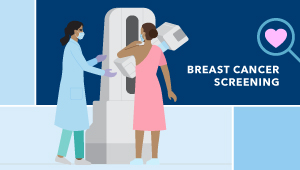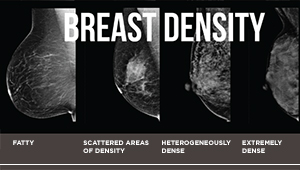Weiwei Zhu, MS
Biography
Weiwei Zhu, MS, joined Kaiser Permanente Washington Health Research Institute's Biostatistics Unit in 2009. She works closely with Affiliate Investigator Diana Miglioretti, PhD, to design studies, manage data, and conduct statistical analyses for the Breast Cancer Surveillance Consortium (BCSC) — the National Cancer Institute’s 7-site network of mammography researchers. She has been a key member of the BCSC Statistical Coordinating Center for over 10 years. Her work studying breast screening benefits and risks played an essential role in an American Cancer Society screening guideline change in 2015.
Weiwei’s current other studies include testing the effects of sitting reduction on cardiometabolic health outcomes through a large randomized trial in older adults, studying a sedentary behavior reduction and physical activity promotion intervention for the older Latino/Hispanic community, and examining the association of the 24-hour activity cycle with cognition and physical function in older adults with Senior Investigator Dori Rosenberg, PhD, MPH. Weiwei has also collaborated on research to quantify the serious risks of misuse, abuse, and addiction associated with long-term opioid use. This multi-site study used electronic health record data and survey interviews to provide estimates of long-term opioid use risks in 2 cohorts.
After beginning her medical research career as an intern at the University of Texas MD Anderson Cancer Center in 2007, Weiwei served as a biostatistician at the Moffitt Cancer Center and Research Institute in Florida.
Research interests and experience
-
Biostatistics
Correlated data analysis; longitudinal data; survival analysis
Medication Use & Patient Safety
Opioid misuse, abuse, and addiction
-
Cancer
Biostatistics; breast cancer screening and surveillance
Recent publications
Hubbard RA, Kerlikowske K, Flowers CI, Yankaskas BC, Zhu W, Miglioretti DL. Cumulative probability of false-positive recall or biopsy recommendation after 10 years of screening mammography: a cohort study. Ann Intern Med. 2011;155(8):481-92. PubMed
Bello C, Yu D, Komrokji RS, Zhu W, Wetzstein GA, List AF, Lancet JE. Outcomes after induction chemotherapy in patients with acute myeloid leukemia arising from myelodysplastic syndrome. Cancer. 2011 Apr 1;117(7):1463-9. doi: 10.1002/cncr.25598. Epub 2010 Nov 8. PubMed
Kharfan-Dabaja MA, Chavez JC, Yu D, Zhu W, Fernandez-Vertiz EI, Perkins J, Shapiro J, Bookout R, Perez L, Fernandez HF, Komrokji RS, Lancetf J, Brand L, Field T, Ayala E, Janssen W, List AF, Anasetti C. Severe hypoalbuminemia at day 90 predicts worse non-relapse mortality and overall survival after allogeneic hematopoietic stem cell transplantation for acute myeloid leukemia and myelodysplastic syndrome. Biol Blood Marrow Transplant. 2011 Mar;17(3):384-93. Epub 2010 Jul 22. PubMed
Mahajan K, Challa S, Coppola D, Lawrence H, Luo Y, Gevariya H, Zhu W, Chen YA, Lawrence NJ, Mahajan NP. Effect of Ack1 tyrosine kinase inhibitor on ligand-independent androgen receptor activity. Prostate. 2010 Sep 1;70(12):1274-85. PubMed
Hunter S, Love-Jackson K, Abdulla R, Zhu W, Lee JH, Wells KJ, Roetzheim R. Sun protection at elementary schools: a cluster randomized trial. J Natl Cancer Inst. 2010 Apr 7;102(7):484-92. Epub 2010 Mar 23. PubMed
Research

Roundup of 3 recent studies on breast cancer screening
New research spotlights overdiagnosis, MRI before surgery, and a new way of predicting breast cancer risk
Cancer screening

Breast density is a risk factor for older women, too
Findings in JAMA Network Open could help guide decision-making about breast cancer screening for women 75 and older.
Research

Phone therapy for insomnia shown to improve sleep
A study among KP members with sleep problems and osteoarthritis shows promise for overcoming obstacles to treatment.



